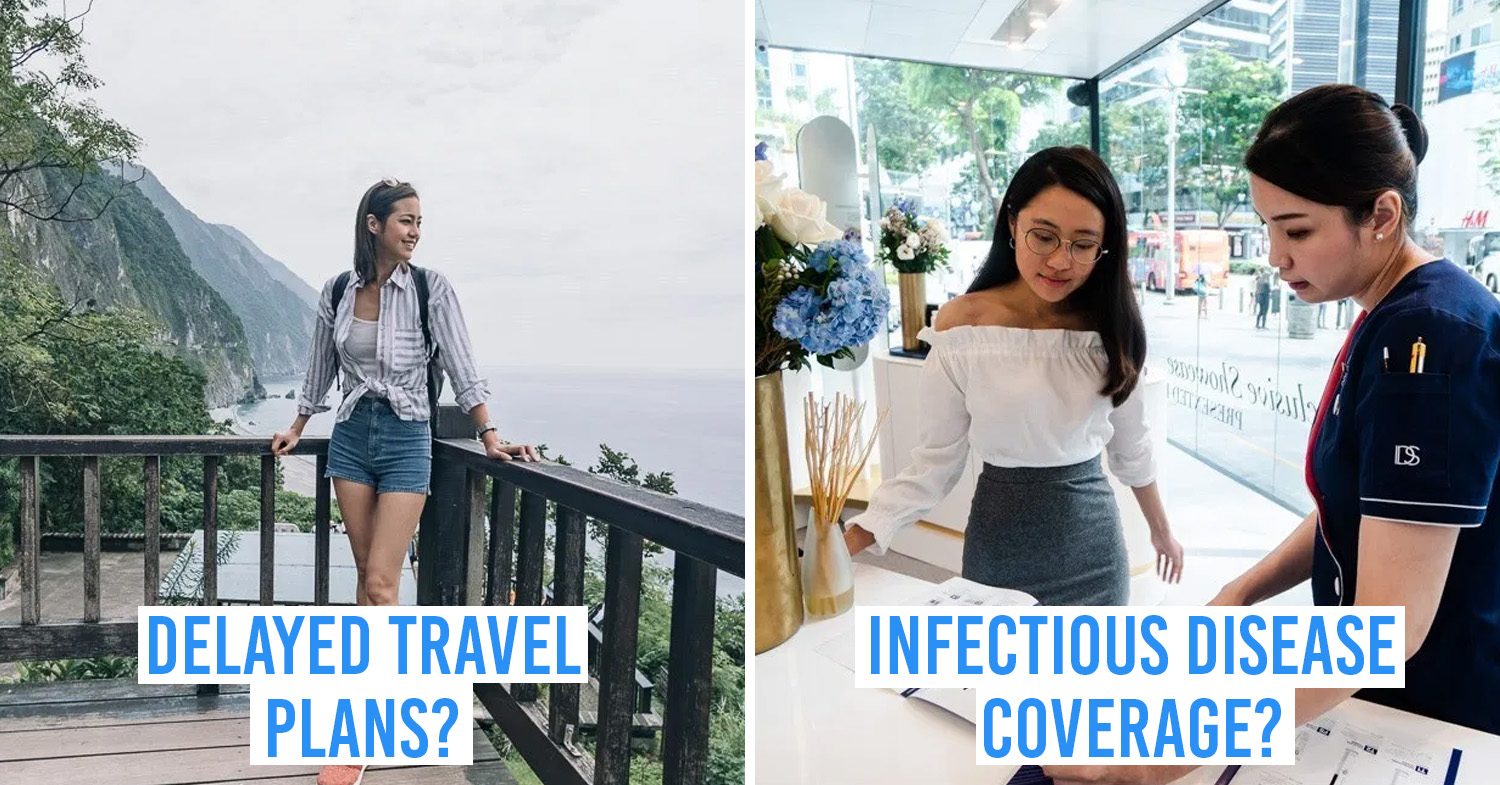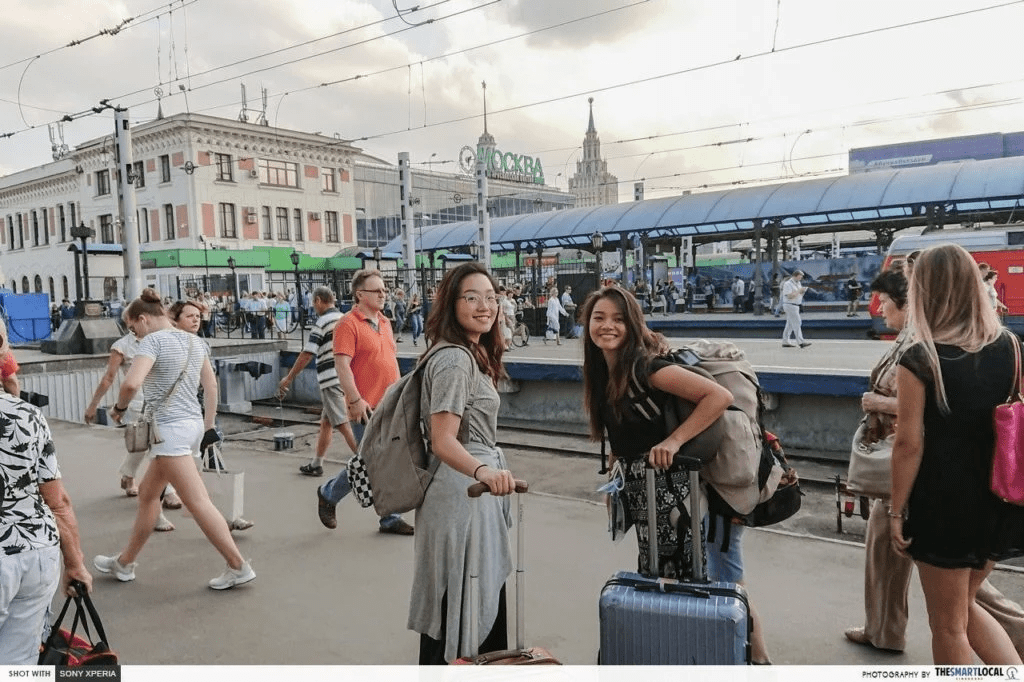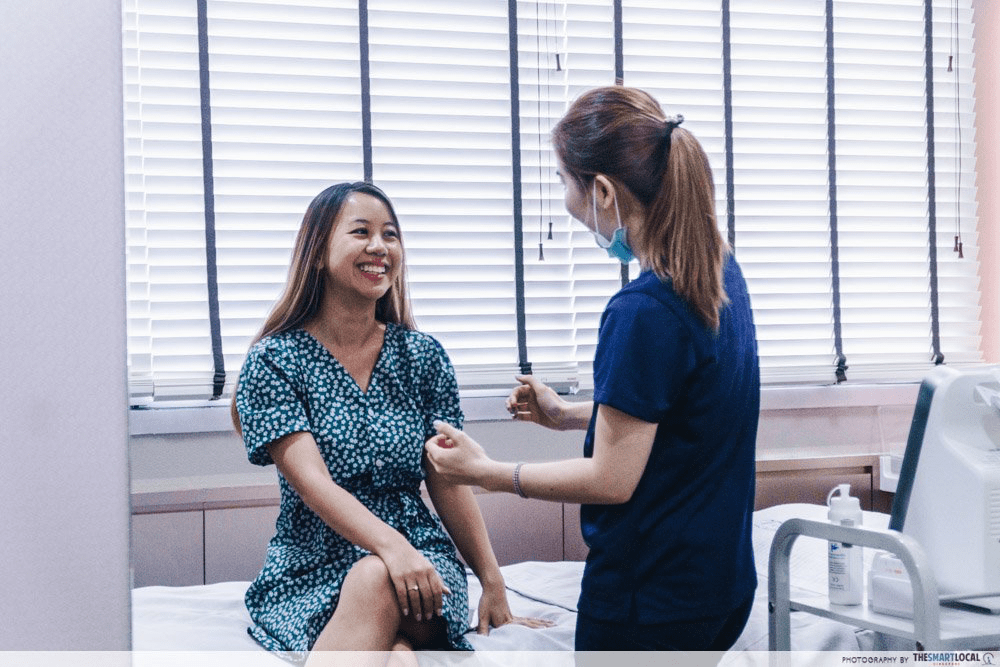COVID-19 insurance

When COVID-19 hit the world, it’s suffice to say that we weren’t prepared for a full-blown modern-day pandemic. Even after months of lockdown and research, it has brought about tons of uncertainty – not just for unsuspecting patients, but also for the economy, our livelihoods, and travel plans.
Community cases may now be in the single digits, but we never know if there’s going to be a second wave of infections as Singapore gradually reopens. Thankfully, many of us have safety nets such as insurance policies. But if you’re still not sure whether your policies’ T&C’s are COVID-19-safe, here’s how to check if you’re covered:
1. Get a plan that includes worldwide infectious disease coverage

Most of us have had to axe our travel plans due to border closures and global lockdowns. And if you bought travel insurance before these restrictions kicked in, you would most likely have been able to claim compensations for your cancelled trips.
This only goes to show that it’s always safest to arm yourself with travel insurance as soon as you make major bookings such as flights and accommodation.
Moving forward, it’s likely that most travel insurance products from here on out won’t cover pandemics, so a protip is to have a Personal Accident plan that includes worldwide infection disease coverage. It will help cover some of the medical costs from infectious disease incurred both locally and overseas in future.

If your travel plans have been axed due to COVID-19, check out the different cut-off dates from insurance companies to see if you’re eligible for claims.
Note that although travel between Singapore and countries like China is now allowed for business or official purposes, you may not be eligible for insurance coverage should you contract COVID-19 overseas.
2. Confirm if your policy now covers COVID-19

While keeping our fingers crossed that we won’t be infected with COVID-19, having insurance to cover related medical costs can help us feel much more at ease. So the question on most people’s minds is: Does my insurance policy cover COVID-19?
You’ll be happy to know the answer is most likely. In Singapore at least, some insurance providers have extended free COVID-19 coverage to all eligible customers. The criteria for this ranges from simply being an account holder to having an existing insurance plan with the insurance company.
3. Check exactly what you can claim if you contract COVID-19

The specifics vary from company to company, but most insurance providers offer some hospitalisation income and/or death benefits. Some insurance companies even offer payouts for policyholders who are in quarantine or who are transferred to an Intensive Care Unit. SingSaver for example, has launched a product with FWD Insurance that offers claims of up to $1,000 for COVID-19 and Infectious Diseases-related claims, and income supplements of $50/day if you’re warded in ICU.
Needless to say, the benefits you get depend on what your current insurance plan entitles you to. Look out for policies with comprehensive infectious diseases coverage that also include disabilities, inpatient and outpatient costs on top of the standard payouts. To play it extra safe, the best plans cover not just COVID-19, but also other common infectious diseases like Dengue fever and Hand Foot Mouth Disease.
Chinese physicians, chiropractors and physiotherapists costs can also be covered, with plans like SingSaver’s exclusive FWD Personal Accident and Infectious Disease Coverage.
4. Defer payments if your cash flow is low

With Circuit Breaker measures, some of us might be worried about unemployment and making ends meet. Add that to the threat of a looming economic downturn and suddenly, insurance payments can become a large burden.
The good news is that to help lighten that load, you can now apply to your insurer to defer premium payments for up to 6 months. This applies across all insurance providers, given that your policy renewal or premium due date lies between 1st April and 30th September 2020.
However, note that this leeway applies only to individual life and health insurance policies. It is also subject to your insurance provider’s eligibility requirements, so make sure to check before applying for a deferment.
 Get coverage for less than $0.30 a day with the FWD Personal Accident and Infectious Disease Coverage policy as an affordable option.
Get coverage for less than $0.30 a day with the FWD Personal Accident and Infectious Disease Coverage policy as an affordable option.
If you don’t qualify for a deferment, look up flexible instalment plans with your insurance provider. Alternatively, consider switching to a more affordable life, health or personal accident policy with higher value for money.
5. Know your alternatives like Medisave

Not having an insurance policy to cover hospitalisation fees can be scary, but Medisave usually comes in handy to defray some of that cost. For COVID-19 cases, the government takes it a notch higher and has stepped in to foot the entire hospital bill.
Right off the bat, the government will pay 100% of testing fees, regardless of if you’re a Singapore citizen, resident, long-term pass or short-term pass holder. They also cover all ensuing treatment and hospitalisation, so there’s no need to tap on your Medisave account at all for hospitalisation!
The only exceptions to this are short-term pass holders or people who chose to leave Singapore after 27th March 2020 and are admitted within 14 days of their return date – who will not be covered by the government and will not be able to use Medisave and their Integrated Shield Plans.
That said, do note that government aid will not cover outpatient costs or grant you income coverage like an insurance product would.
6. Check your eligibility for multiple policy claims
 Protect your loved ones with additional income from insurance benefits
Protect your loved ones with additional income from insurance benefits
While the government does pay a large chunk of the hospital bills, having an insurance provider is still ideal. With the right COVID-19 coverage, not only can you claim for outpatient expenses, you’ll also receive cash coverage for every day you spend in the hospital.
The extra income you get from insurance can help provide some financial security for you and your family. In the unfortunate event that you’re hospitalised with an infectious disease like COVID-19 or any other personal accident, you can recover in peace knowing that you’re still earning some dough. Situations like the one we’re currently in are most unexpected and can happen anytime, anywhere, so it’s best to be prepared.
Bonus: know when you can receive your benefits

We’ve gone through the benefits insurance can provide, but you might be wondering how long these payouts will take. Here’s a breakdown:
For travel insurance, you’ll have to contact your insurer and submit travel insurance claim forms as soon as possible. Most companies limit the claims eligibility period to 30 days from the insured incident. On top of that, make sure your policy was activated before the lockdown periods.
For testing and hospitalisation bills, the benefit from government policies kicks in automatically and goes straight to the hospital. No need to worry about payment!
For COVID-19 related outpatient claims, you’ll have to go through a reimbursement system if your insurance plan covers. Contact your insurer and submit your claims no later than 30 days of the visit. If all is approved, you’ll usually get the reimbursement within the stipulated time stated on your policy.
The same goes for hospital cash income – once you’re discharged, send in the documents and the claims forms no later than 30 days, to get the amount you’re entitled to.
Having insurance with maximum protection
We’re still coping with the pandemic for the long-run, but there’s less cause for panic if you’ve got the right insurance. With life, health and personal accident policies, you can be sure you and your loved ones will be financially taken care of even in the worst-case scenarios.

For COVID-19, most insurance companies have automatically extended coverage to eligible customers, but do check with your insurance provider if it covers other infectious diseases too. It’s best to be safe than sorry, so it’s important to have more than COVID-19 coverage for maximum protection.
While you’re at it, also check to see if your policy covers outpatient expenses, disability and death benefits. Keep in mind to see if the robustness of coverage is enough to tide you and your family through.
Get covered with SingSaver’s exclusive FWD Personal Accident and Infectious Disease Coverage
If you’re looking for something affordable but still comes with great benefits, consider the FWD Personal Accident and Infectious Disease Coverage insurance policy. Launched exclusively with SingSaver, this 2-in-1 coverage covers you for COVID-19 as well as personal accidents – all for less than $0.30/day. With no occupational premium loading, you can be assured you’re getting the best low price regardless of income bracket.

For COVID-19 and 23 other infectious diseases, this policy grants special protection that most other Personal Accident insurance policies don’t have, including:
- Death Benefit – $50,000
- Permanent Total & Partial Disability – $50,000
- Medical Expenses SG (Inpatient/ Outpatient) – $1,000
- Hospital Cash Coverage (Allowance) – $25/day, up to 365 days
- Short 15-day waiting period for policy to kick in
- No occupational loading – pay the same price, regardless of income bracket
It doesn’t skimp on Personal Accident coverage either – in fact, it provides the standard market level of $100,000 for accidental death benefits. You can also claim up to $2,000 for hospitalisation expenses on top of hospitalisation income of $50/day. In addition, this policy has provisions for physiotherapy and treatments at Chinese physicians, acupuncturists, bonesetters and chiropractors.
Whether you’re overseas or not, you’ll also be well covered for medical expenses and even medical evacuation with the FWD Personal Accident and Infectious Disease Coverage insurance policy. You can rest and travel easy knowing you’re well-covered with the maximum protection there is to offer.
Get covered with FWD Personal Accident and Infectious Disease Coverage here
This post was brought to you by SingSaver.
All information shared in this article should be professionally backed up with an insurance agent in practice.